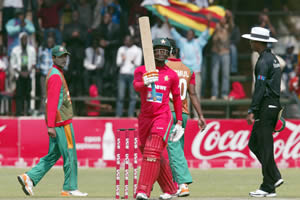Teacher incentives and tuition quality
thwarted. In the early years of independence, Zimbabwe stepped up its campaign on literacy with a phenomenal expansion of primary, secondary and tertiary education.
Today, Zimbabwe boasts a high-profile literacy rate of 92 percent on the African continent.
But that record should of necessity be jealously and effectively guarded, otherwise the high-quality education that Zimbabweans flaunt around the globe might eventually decline into mere functional literacy whereby future generations might just learn to read and write to get along in a world that is already becoming technologically advanced.
It is therefore a matter of life and death that Zimbabwe protects the gains it has made educationally, to keep abreast of a world driven by high technological skills, a trademark of post modernity.
It is in the quest to achieve that proud goal, that I believe that the Government through the Ministry of Education, Sport, Art and Culture has banned holiday lessons for pupils other than those in Grade Seven, Ordinary and Advanced examination classes.
But not only that the Government will deploy education officers to monitor the quality of tuition by inspecting the delivery of lessons to benefit students who pay hard-earned money for these lessons.
Concern has long been voiced by parents and in educational circles that some teachers failed to acquit themselves during term work as well as they should, apparently as a way of getting students to register and pay for extra lessons during holidays.
Obviously, the behaviour of those teachers who shirked their responsibility and obligation to earn their keep is decidedly unZimbabwean and should be denounced with the contempt it deserves. That laisses faire approach to work has no doubt been responsible for opening the door for mediocrity to creep into our educational system, thereby inviting the Government to prescribe a possible panacea and restore the requisite quality to the country’s education.
It is said “experience is the best teacher” and this pen suggests that the adage is valid to a great extent in the subject in point here.
In the 1950s and 1960s education inspectors were sent out by the Government of the day to rural schools at times paying surprise visits – to ensure that teachers did not sleep on the job, in the process disadvantaging students.
Even after Independence that was done.
This was notwithstanding the fact that in those good old days teachers strove for credit to their names by competing with others to get a whole class pass end of year examinations.
When this happened a teacher whose class scored high marks was feted in the community as a hero with high esteem bestowed on him or her.
It was not surprising, therefore, that graduates of Standard Six, not to mention Junior Certificate, went on to train as teachers themselves in addition to becoming bricklayers, carpenters and so on.
Today, on the contrary, some teachers doze off in class most of the time only peeling their eyes at month end to receive their pay with no remorse whatsoever for sleeping on the job.
The revival of the inspectorate by the Government should go a long way in revitalising and consolidating the gains of the much-vaunted growth in education in this country.
Inspection and supervision of teaching regimes should also be extended to teachers’ colleges and to the universities dotted around the country to ensure adequate staffing and provision of teaching aids.
Any such measures will prevent a dilution of the quality of education in keeping with positive, bench-mark precedents set well before independence which should not be thrown out the window.








Comments